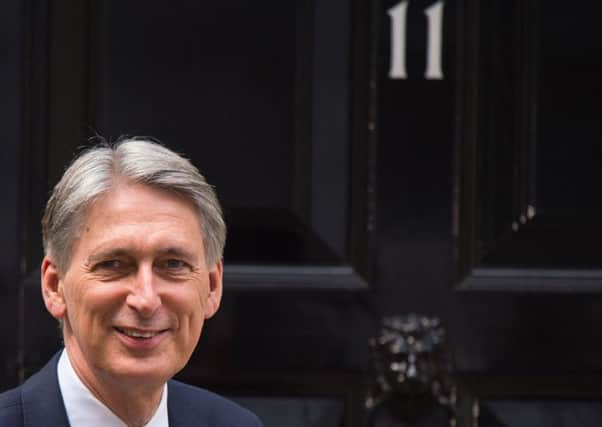YP Comment: Worries over the economy - Government must calm nerves


Opponents of Britain leaving the EU will be quick to blame the uncertainty following the referendum vote for a loss of confidence, but that is too glib an answer, since there were signs of difficulties ahead even before then.
Nevertheless, the lack of optimism amongst business leaders, a 2.8 per cent decline in overall footfall in retail and the forecast by the EY ITEM Club of a fall in economic growth from 2.3 per cent to 1.9 per cent this year must be taken seriously.
Advertisement
Hide AdAdvertisement
Hide AdIt was inevitable that the vote for Brexit would have some economic effects, if only because business dislikes uncertainty, but the economic forecasts on growth for the coming three years fall a long way short of the cataclysm predicted by the Remain camp in the run-up to the referendum.
Though the Bank of England decided last week against slashing interest rates to a new record low in order to stimulate growth, the option remains and may need to be used in the months ahead.
For now, it is essential that the new Prime Minister and her Government send out a message of calm to the markets. There is still no timetable for Britain leaving the EU, and work on how and when Brexit will happen is at the earliest of stages.
It is business as usual for Britain. There is no reason to panic. The jitters of the days after the vote have settled. Even on these forecasts, Britain’s performance compares favourably with our neighbours in Europe, and it is for both the business community and the Government to ensure that the country does not talk itself into a slump.
Child obesity
Advertisement
Hide AdAdvertisement
Hide AdOBESITY is one of the most serious health issues facing Britain, a timebomb that threatens to bring misery to countless families and a modern epidemic that could put the NHS under even more strain.
Health professionals will be dismayed that council spending to tackle obesity is going to fall from £140m to £127m as part of the ongoing squeeze on local authority budgets, seeing it as a cut that comes at precisely the wrong time.
The fall in spending is regrettable, given the scale of the problem, but is perhaps inevitable in the context of pressure on council budgets.
Education has a major part to play in diverting children away from a diet high in sugar and fat so that they do not develop a weight problem in the first place, and a cut in the budgets will undoubtedly make this more difficult, as well as limiting practical steps that can be taken to help the overweight.
Advertisement
Hide AdAdvertisement
Hide AdThere is a sense that the Government has lost focus on the issue. Its strategy for tackling the problem in children was due to be published last year, yet there is still no sign of it.
And it has faced accusations of going soft on the levels of sugar in food and drinks following industry pressure. It would be helpful if its obesity strategy was published sooner rather later, to emphasise that it is taking the issue seriously enough.
Yet obesity is a problem that is to a large extent beyond the reach of either the Government, or the councils which work so commendably hard to tackle it.
Ultimately, it must be the responsibility of parents to ensure that their children are eating a healthy and balanced diet, as well as getting enough exercise.
Advertisement
Hide AdAdvertisement
Hide AdHowever much funding the Government allocates, it cannot reach into the individual homes where the problem lies.
Hull on the up
OPTIMISM can work wonders for the fortunes of a place, and Hull is the happy beneficiary of a current surge in positive thinking and exciting events to anticipate.
The enthusiasm of the BBC’s Antiques Roadshow team, coming just a week after the extraordinary naked living sea installation in the city by the artist Spencer Tunick confirms the sense of a city on the up.
Hull’s status as next year’s UK City of Culture promises to give a further huge boost to the city’s profile, just as it will also reap the major economic benefits of the massive investment by wind-power giant Siemens.
Advertisement
Hide AdAdvertisement
Hide AdThis all adds up to very good news. Hull has suffered much in recent decades as the result of the decline in its traditional fishing industry. It has been long overdue for a major revival in its fortunes, and that is now happening. Hull’s people deserve no less.